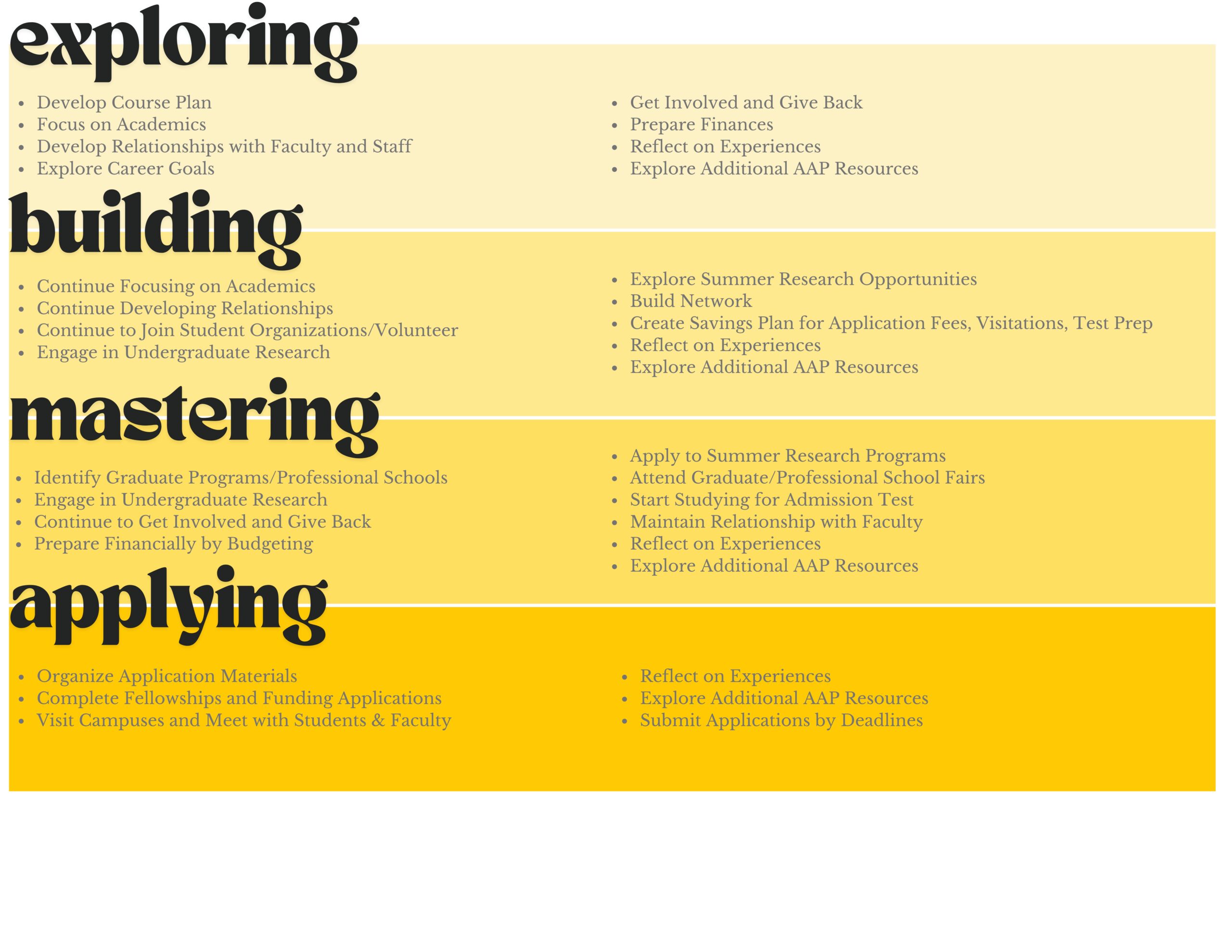Mission Statement
The mission of Pre-Health and Pre-Law (PHPL) is to teach and guide Pre-Health and Pre-Law students in any undergraduate major to become competitive applicants for health professional schools and law schools.
Vision Statement
The vision of Pre-Health and Pre-Law (PHPL) is to maintain a standard of excellence as a university-wide academic advising office and resource. As a unit within the Division of Student Success and Well Being, we strive to facilitate our knowledge to our students and to be university-wide collaborators with our partners in the coaching community, faculty, and administration. We will maintain professional, trustworthy, and reliable relationships with our students and be a respected resource for coaches and the faculty. We aim to be inspirational, motivational, and to do our best for every student we meet with, but we will also use our knowledge of evidence and statistics to provide our students with a realistic view of their competitiveness for admission to a program when necessary. As the Pre-Health and Pre-Law team, we will be on the cutting-edge of the information flow in our field so we can keep our students up-to-date and can help them use this information to make informed decisions about their future. Our guidance and innovative services for our Pre-Health and Pre-Law students will be a model for others in the state, region, and nation.
Levels of Support
Our team assists Pre-Health and Pre-Law students as they develop and progress through four phases:
